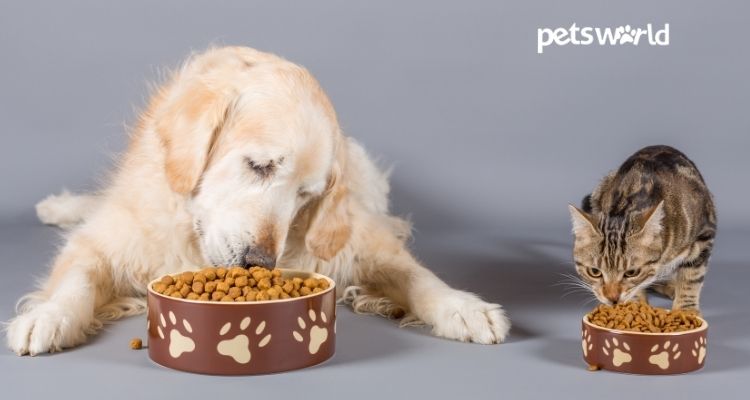

As a pet owner, it’s only natural you want all the best for your furry friends. Whether you have a cat or dog or a bunch of both of them, you want to make sure they get everything they need. Some of these basic things you’d have to provide for them include food, shelter, medicines, exercise, your love and care (e.g. cuddles, hugs), and, of course, grooming.
Importance Of Grooming Your Furry Pet
One essential factor you may tend to overlook as a pet owner is your pet’s grooming. You may be feeding it right and giving it enough time to run around the house or outdoors to exercise. But you may be neglecting its grooming, which could bring adverse effects to your pet’s overall health. Remember, your pet’s outer appearance, specifically its coat or fur, could also be a reflection of its health.
If your dog, for example, has been showing signs of skin problems or is covered with fleas, it’s a hint there’s something wrong with its health. In this case, you’d need to have your pet checked by a veterinarian immediately. They may recommend some soap, shampoo, medications, or flea collar for dogs. And, of course, there’d be a reminder to start looking after your pet’s grooming more attentively.
Apart from these, there are other more steps you’d need to consistently follow to ensure a healthy coat for your pet. Below is a 3-step guide you could stick by to keep your pet’s fur shiny and healthy.
Like humans, pets need to bathe regularly, too, but they don’t have to be bathed every single day. Doing it too often may only damage their skin as it would strip off their skin’s natural oils, which is responsible for making their fur shiny. Typically, the frequency of their bathing would depend on their age, activity level, breed, and skin type. So it’s best to consult a vet to know the suitable number of baths per week your pet needs.
Normally, however, puppies would require to be bathed at least once a month. For adult dogs, it’s usually once a week or maybe less frequent than that, especially if it’s an indoor type of dog. Cats, on the other hand, are known to be self-grooming, which means they rarely need bathing. But if your cat doesn’t seem to groom itself, you’d need to bathe it more often. Nevertheless, since the frequency of bathing your pet depends on many factors, consulting a vet first is the safest way to go.
Whether you have a cat or dog, it may be best to bathe your pet with organic products to avoid skin irritation. Bathing products that contain vitamin E may be good for your pet’s fur and skin as it could help its coat become healthy and shiny. For good product recommendations, consult a vet to avoid using bathing products containing chemicals that may be harmful to your pet’s hair.
- Brush Your Pet’s Hair Regularly
Another way to keep your pet’s fur in good shape is by brushing it regularly. Doing this could help remove dead skin and hair and, at the same time, increase the production of your pet’s natural oils.
Especially for dogs, regular brushing would help energise their skin and promote the growth of their hair follicles. There’s no need to worry about their breed or fur type as brushing their hair regularly could do them better. The only thing you may need to consider is finding the right brush that matches their breed and fur type before you could get to work. If you’ve observed your dog shed a lot of hair during brushing, it may be best to get a deshedding brush so you could keep your pet’s fur looking well-groomed and healthy while minimising hair shedding.
For cats, regular brushing would also do well for their fur. Brushing their hair could help spread the natural oils they produce from their skin, increasing the sleekness and shininess of their coat. It’s also common for cats to start building hairballs when they’re rarely brushed and groomed. So to reduce your cat’s hairballs, it’s best to brush its hair regularly.
As you brush your cat’s fur, use this as an opportunity to inspect the hair for any presence of fleas and other bugs that may be secretly living there. If you’ve detected any fleas, it may be best to get your pet a cat flea collar to drive away the parasites. If you’re having difficulty brushing your cat, you could always avail yourself of professional cat-grooming services when necessary.
- Give Your Pet Nutritious And Quality Food
Besides taking care of your pet’s skin from the outside, you’d also need to take care of its hair from the inside. The key to keeping your pet’s fur healthy, shiny, and strong is by giving your furry friend a quality diet complete with all the nutrients it needs. When buying your pet’s food, always pay attention to the substances and ingredients specified on the label. If you aren’t familiar with the nutrients needed for your pet’s fur, you can always consult your vet.
For dogs, it’s recommended to feed them with food rich in omega-3 fatty acids and omega-6 for optimal health, which includes having a healthy hair or coat. You’re also free to add a mix of vegetable oil to your dog’s food every meal to add some extra glow to its coat.
For cats, food rich in omega-12 and -6 would be best to achieve shiny and good quality cat fur. Some of these enriching foods packed in omega nutrients are sardines, tuna, trout, and herring. However, based on research, it’s best to avoid feeding your cat with raw fish as it may contain bacteria or parasites, which could put your cat’s health at risk. If you’re feeding them with fish-based food, make sure to boil it first or do a quick grill to remove any trace of parasites.
Final Thoughts
No matter what your pet’s age, size, breed, or personality is, it’s natural for a pet owner like you to ensure your pet always looks its best. The healthier your pet is, the happier it will be, and having shiny and healthy fur is a huge indicator your pet has overall good health. So keep this 3-step guide as a starting place in making your pet’s fur looking sleek and gorgeous. Most importantly, don’t hesitate to involve the vet in every decision you make for your pet.
